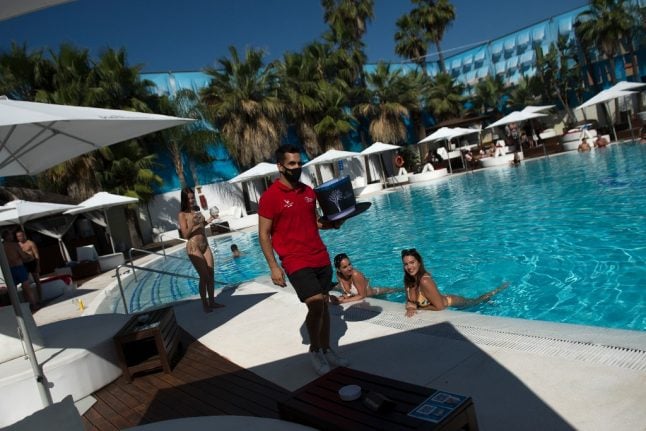“The way the figures are evolving have been very good,” said Fernando Simon, the head of the Coordination Centre for Health Alerts and Emergencies, told a news conference.
Spain recorded 38 deaths and 182 new coronavirus cases in the last 24 hours.
The total number of deaths in the country is 27,119 while the number of confirmed cases stands at 237,906.
Spain imposed a strict lockdown, but started easing restrictions from May 11 in phases lasting until the end of June.
From Monday, new areas of the country will be allowed to open swimming pools, albeit to limited numbers of people, and beaches where people will have to maintain at least a distance of two metres.
This second phase will cover the whole of Andalusia and Valencia, a large part of Catalonia, as well as the Balearics and Canary islands, the health ministry said.
About 70 percent of Spain's population will be affected by this new phase, which will also see the reopening of cinema halls, theatres and auditoriums but at a third of capacity.
Shopping centres will also be allowed to reopen but at reduced capacity — 40 percent of typical footfall — and indoor dining at restaurants will also be permitted.
A third of the population — or people living in the two worst-affected zones of Madrid and Barcelona — will however remain in the first phase.



 Please whitelist us to continue reading.
Please whitelist us to continue reading.
Member comments